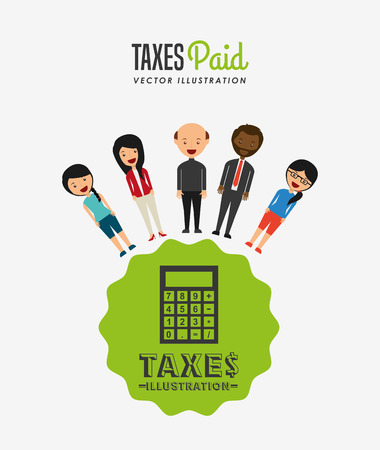Introduction to Property Taxes
Property taxes are a fundamental part of homeownership in the United States and play a significant role in shaping your monthly mortgage payment. These taxes are levied by local governments—such as counties, cities, and school districts—to fund essential public services like schools, police and fire departments, road maintenance, and community infrastructure. The concept behind property taxes is straightforward: homeowners contribute to the cost of maintaining and improving their local communities based on the assessed value of their real estate. This system ensures that those who benefit most directly from local services help support their ongoing operation and development. Understanding how property taxes work is crucial for any homeowner or prospective buyer, as these taxes not only impact your overall cost of ownership but also influence the quality of life in your neighborhood.
2. How Property Taxes Are Calculated
Understanding how property taxes are calculated is crucial because these taxes directly influence your monthly mortgage payment, especially if you have an escrow account. Property tax amounts can vary significantly based on several key factors. Here’s a breakdown of what determines your annual property tax bill:
Key Factors in Property Tax Calculation
| Factor | Description | Impact on Tax Amount |
|---|---|---|
| Assessed Home Value | The dollar value assigned to your home by the local tax assessor, usually based on recent sales data or market value estimates. | Higher assessed values result in higher property taxes. |
| Local Tax Rate (Millage Rate) | The rate set by your city, county, or school district, often expressed as a percentage or per $1,000 of assessed value. | Areas with higher rates will lead to higher property tax bills for the same assessed value. |
| Exemptions & Deductions | Certain homeowners (like seniors, veterans, or primary residents) may qualify for exemptions that reduce taxable value. | Exemptions lower the total amount of property tax owed. |
Example Calculation
If your home is assessed at $300,000 and your local tax rate is 1.25%, your base property tax would be $3,750 per year. If you qualify for a $50,000 homestead exemption, your taxable value drops to $250,000, making your new annual tax $3,125.
The Connection to Your Mortgage Payment
Lenders often require you to pay a portion of your estimated annual property taxes each month along with your principal and interest. This money goes into an escrow account and is used to pay the tax bill when it’s due. Understanding these calculation factors helps you anticipate potential changes in your monthly mortgage payment if property values rise or if local governments adjust their tax rates.

3. Escrow Accounts and Tax Collection
When you finance a home in the United States, your lender typically requires you to set up an escrow account as part of your mortgage agreement. This is a common practice designed to ensure that important recurring expenses—like property taxes and homeowners insurance—are paid on time. Instead of paying your annual or semi-annual property tax bill in one large lump sum, your lender estimates the total yearly property tax obligation and divides it by twelve. This amount is then added to your monthly mortgage payment.
Each month, when you make your mortgage payment, a portion goes toward principal and interest, while another portion is deposited into the escrow account. Your lender holds these funds until your property taxes are due, at which point they pay the bill directly to the local tax authority on your behalf. This process provides peace of mind for both you and your lender—ensuring that taxes are always paid on time and reducing the risk of tax liens against the property.
The impact on your monthly payment can be significant. Because property taxes vary widely depending on location and assessed home value, two homeowners with similar mortgages but different tax rates will have very different total monthly payments. For example, if your annual property tax is $6,000, about $500 will be collected each month via escrow. If taxes increase due to reassessment or local rate hikes, your lender will adjust your escrow contributions accordingly, resulting in a higher monthly payment even if your loan principal and interest remain unchanged.
4. How Property Taxes Affect Your Mortgage Payment
Understanding the direct relationship between property taxes and your monthly mortgage payment is crucial for American homeowners. When you purchase a home, your lender often requires you to pay property taxes through an escrow account, which is included in your monthly mortgage bill. Here’s how it works:
Direct Link Between Property Taxes and Monthly Payments
Your annual property tax bill is divided by 12 months and added to your principal and interest payments. The total sum becomes your required monthly payment to the lender. This means that if your property taxes increase due to reassessment or changes in local tax rates, your monthly mortgage payment will also rise—even if your loan’s principal and interest stay the same.
Example: Calculating the Impact of Property Taxes
| Scenario | Annual Property Tax | Monthly Property Tax Portion | Total Monthly Mortgage Payment (P&I + Tax) |
|---|---|---|---|
| Original Estimate | $3,600 | $300 | $1,800 (P&I $1,500 + Tax $300) |
| After Tax Increase | $4,200 | $350 | $1,850 (P&I $1,500 + Tax $350) |
This table illustrates a common scenario: If your annual property tax goes up by $600, your monthly payment increases by $50.
Typical Payment Structures in the U.S.
Most lenders use an escrow model to collect property taxes alongside your mortgage payment. Every month, you pay 1/12 of your projected annual tax into escrow. The lender then pays the tax bill when it comes due. This system helps homeowners budget more effectively by spreading costs throughout the year. However, remember that escrow accounts are periodically reviewed and adjusted if local taxes change.
5. Changes in Property Taxes and Their Impact
Property taxes are not static, and any change—whether an increase or decrease—can significantly impact your monthly mortgage payment. When local governments reassess property values, it often leads to adjustments in property tax bills. A common trigger for reassessment includes home improvements, changes in ownership, or periodic county-wide updates to reflect current market values. If your property taxes go up after a reassessment, your mortgage servicer will recalculate your escrow payments, resulting in a higher monthly bill. Conversely, a drop in property taxes can lower your overall housing costs by reducing the escrow portion of your mortgage payment. However, it’s essential to note that property tax increases are more common than decreases, especially in areas experiencing rising real estate values or new public projects requiring funding. These fluctuations make it critical for homeowners to regularly review their mortgage statements and stay informed about local tax policies. Ultimately, changes in property taxes directly affect housing affordability and should be factored into long-term budgeting and financial planning.
6. Tips for Managing Property Tax Costs
Effectively managing your property tax expenses is a key strategy for keeping your monthly mortgage payment predictable and affordable. Here are some practical tips to help you stay on top of this important homeowner responsibility.
Budgeting for Property Taxes
Start by reviewing your annual property tax bill and dividing it by 12 to estimate the monthly amount. If your lender does not collect taxes through escrow, set up a dedicated savings account and make monthly deposits so you’re not caught off guard when the bill arrives. This disciplined approach ensures you’ll have the funds ready when payment is due, preventing financial stress and late fees.
Challenging Assessments
If your property assessment seems unusually high, don’t hesitate to challenge it. Review your local assessor’s report for errors in square footage, features, or comparable values. Gather evidence such as recent sales data from similar homes in your area. Most municipalities have a formal appeals process—filing an appeal can potentially lower your assessed value and reduce your yearly tax obligation. Remember to act within the deadlines specified by your local government.
Planning for Potential Increases
Property taxes can rise due to reassessments, voter-approved levies, or changes in local budgets. Stay informed about policy changes and upcoming elections that could affect tax rates in your community. When planning your annual household budget, consider adding a buffer (for example, 5-10%) above the current tax rate to account for possible increases. This proactive step helps avoid surprises and keeps your mortgage payments manageable if taxes go up.
Utilize Available Exemptions
Many states offer exemptions or credits for homeowners—especially seniors, veterans, or those with disabilities. Research what programs are available in your area and apply promptly. These exemptions can result in significant annual savings.
Stay Organized
Keep all property tax documents, assessment notices, appeal records, and correspondence in one place. Good recordkeeping makes it easier to track changes over time and respond quickly if you need to dispute an assessment or update your lender about escrow adjustments.
By taking these practical steps—budgeting ahead, monitoring assessments, planning for increases, utilizing exemptions, and staying organized—you’ll be better equipped to manage property tax costs and maintain control over your monthly mortgage payments.


